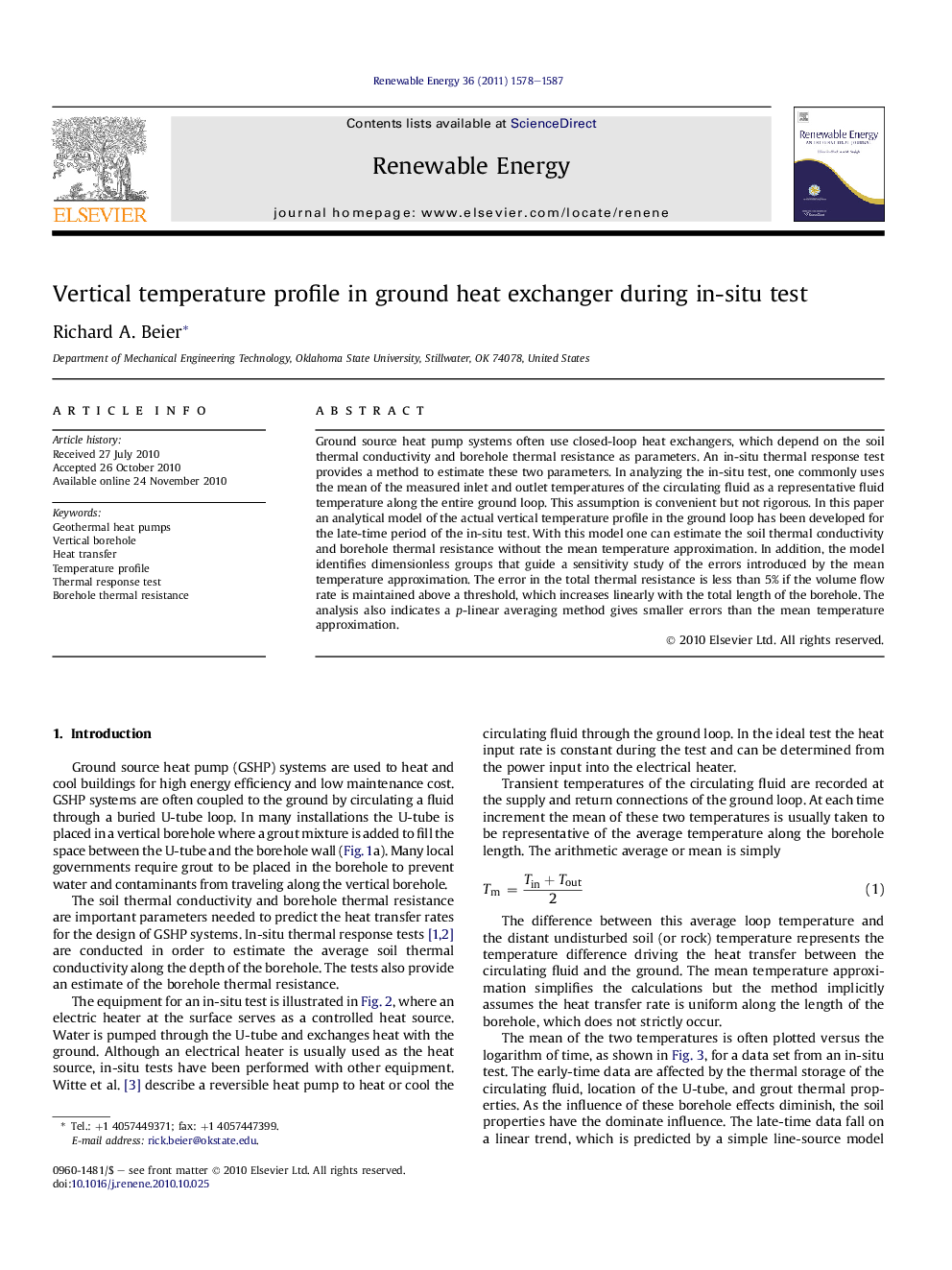| Article ID | Journal | Published Year | Pages | File Type |
|---|---|---|---|---|
| 10294180 | Renewable Energy | 2011 | 10 Pages |
Abstract
Ground source heat pump systems often use closed-loop heat exchangers, which depend on the soil thermal conductivity and borehole thermal resistance as parameters. An in-situ thermal response test provides a method to estimate these two parameters. In analyzing the in-situ test, one commonly uses the mean of the measured inlet and outlet temperatures of the circulating fluid as a representative fluid temperature along the entire ground loop. This assumption is convenient but not rigorous. In this paper an analytical model of the actual vertical temperature profile in the ground loop has been developed for the late-time period of the in-situ test. With this model one can estimate the soil thermal conductivity and borehole thermal resistance without the mean temperature approximation. In addition, the model identifies dimensionless groups that guide a sensitivity study of the errors introduced by the mean temperature approximation. The error in the total thermal resistance is less than 5% if the volume flow rate is maintained above a threshold, which increases linearly with the total length of the borehole. The analysis also indicates a p-linear averaging method gives smaller errors than the mean temperature approximation.
Keywords
Related Topics
Physical Sciences and Engineering
Energy
Renewable Energy, Sustainability and the Environment
Authors
Richard A. Beier,
